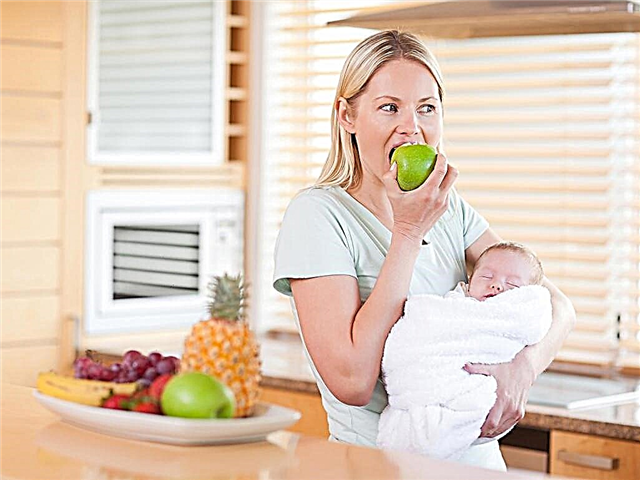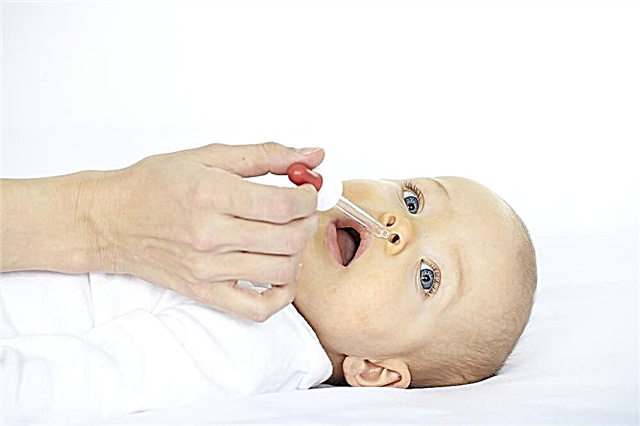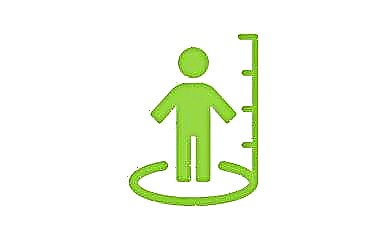Every child sooner or later begins to get acquainted with viruses and bacteria that provoke infectious diseases. All adults in their lives have repeatedly encountered acute respiratory infections, but only a few know what to do when a child coughs.

Cough
Causes of severe cough in children under one year old
The airway of a small child is much narrower than that of an adult. Therefore, any irritants can cause a severe cough in a child, how to help the baby, will depend on the source of the irritant. All the most popular reasons can be divided into several types:
- Infectious cough. It appears when a baby has contracted a viral or bacterial infection.
- Allergic cough. It occurs when a child breathes not clean, but dry and warm air with impurities or a pungent odor.
- Cough from posterior rhinitis. It occurs mainly at night when the baby is put to bed. A runny nose, localized in the posterior parts of the nasal passages, does not manifest itself as a habitual flow from the nose, because snot flows non-stop along the back of the pharynx, irritating the mucous membrane and causing a cough.
- Reflex cough. It begins when a foreign object got into the child's respiratory tract: he choked on food, put a small part in his mouth, the parents forcibly put medicine in his mouth while the baby resisted loudly.
- Cough in the open air or after bathing. It is mistaken for the initial stage of the disease. There is such a cough in those children who live in a room with two heaters and a sealed window. The mucus produced by the respiratory system dries up, turns into crusts and covers the walls of the bronchi and trachea. When the baby finally finds himself in fresh and humid air, the crusts swell, become mucus again, which the body tries to remove with a cough.

The child needs a doctor
Attention! A barking irritating cough, manifested by prolonged attacks, may indicate that the baby has laryngeal edema. This makes breathing significantly more difficult and requires an immediate call to the doctor.
How to make an accurate diagnosis
Mom, being with the child all day without a break, can easily distinguish an allergic cough from an infectious one. A sudden attack, beginning with a barking cough that occurred immediately after someone damped the room with chlorine-containing chemicals, clearly indicates an allergic reaction.
An infectious cough differs from an allergic cough in a general violation of the child's condition:
- an increase in body temperature;
- weakness;
- lack of appetite;
- sore throat when swallowing (and redness);
- runny nose;
- capriciousness (for babies).
The tactics of treating an infectious cough are also controversial. It all depends on what kind of pathogen provoked the onset of the disease. The fundamental difference between viral and bacterial infection. Only a doctor can distinguish them. At the same time, viral diseases can only be overcome by the body itself, having developed interferon and antibodies, and an antibiotic, which the doctor prescribes, must fight against bacterial infections.
Bacterial infections of the respiratory tract often have a definite clinical picture, which is difficult to confuse with a viral infection, for example:
- with scarlet fever in a child, the tongue takes on a crimson hue with inflamed papillae on it, a rash appears on the body, sore throat, plaque on the tonsils;
- with angina, the temperature jumps above 38.5˚C, the child cannot swallow, there is an ache in the joints;
- diphtheria is characterized by hoarseness of voice, gray blooms on the tonsils and tongue, shallow breathing or significant difficulty in breathing;
- whooping cough can be distinguished from a common cold only after a week, because in the first days it almost does not differ from it, only a week later the cough literally clogs the child.

Tongue with scarlet fever
Important! An experienced specialist will not be confused and will be able to distinguish scarlet fever from a cold at first sight. This is very important in the treatment of children. If the disease is serious and requires special treatment, it cannot be delayed so that complications do not arise.
Why a strong cough is dangerous for babies
If the child coughed heavily, do not disturb him. Attention should be paid to the circumstances surrounding the coughing fit. Pounding on the back, grabbing hands, shaking the child, turning it over. If he can cough, then he is able to independently clear the respiratory tract of foreign bodies, food, saliva and phlegm. A cough is always more productive than any patting.
The danger is not a cough, but swelling of tissues, bacteria toxins that began to multiply and provoke the development of the disease.
When to see a doctor
A baby is always needed medical help if the baby is less than three months old and has a cough. When the condition of babies is disturbed, you need to consult a doctor, because especially careful care should be taken for babies in the first three months of life. For older children, there is a list of situations that indicate the severity of the condition:
- noisy breathing is heard, with wheezing or whistling;
- the child cannot take a full breath;
- another coughing fit ends with vomiting;
- the child has a severe cough for two weeks;
- endless coughing attacks that prevent the child from taking a breath;
- on the tonsils and tongue, there is a white or yellow purulent coating;
- antipyretic drugs do not cope with hyperthermia.
Taking the right action when a child is coughing requires a doctor, especially when parents are confused, agitated, and lack the practical skills to care for a sick toddler.

Doctor call
Attention! It is unacceptable to limit treatment with alternative methods when it comes to bacterial infections. It is impossible to cure a sore throat with a decoction of herbs. Delaying medication can lead to disability.
First aid for infants when coughing
The main help to the patient is to provide the respiratory system with fresh air. This is especially true when the child coughs very often and paroxysmal. Unable to breathe in clean and moist air, the baby suffers from drying out of the mucous membranes. Dry air cuts the nasal passages and irritated trachea, provoking new attacks. The first thing that parents should do is to put the air parameters of the room in order, if for some reason it is not possible to do this, take the baby outside, away from busy roads and gas pollution.
If parents with a baby are in the country, far from medical facilities, and the child is constantly coughing, gasping for breath, the first thing to do is to give him ice cream. A paradoxical method of treatment, at first glance, is able to relieve tissue edema and facilitate the passage of air. The baby will be able to breathe freely until the ambulance arrives, or until the parents themselves get to the nearest medical center.
At home, you can use a nebulizer that easily moisturizes even the deepest and narrowest parts of the bronchi and lungs, delivering the necessary medicinal substances there. This is the quickest way to moisturize dry throat.
Attention! If there is swelling in the larynx that prevents inhalation, a few drops of a vasoconstrictor, used for nasal congestion, can be added to the nebulizer. With the steam, the particles of the drug will fly to the tissues increased in size and promptly relieve the swelling, due to which the child will stop suffocating.
What not to do
Modern parents should know that some folk remedies not only will not have the desired effect, but can also harm the baby. A striking example of such procedures is steam breathing of boiled potatoes. Many years ago, when there were no inhalers, this was the only way to moisturize the upper respiratory tract (only the tonsils and mouth). At the same time, the bronchi and lungs do not receive a drop of moisture, the trachea runs the risk of getting burned by hot air, and the child turns the boiling water over on himself. In today's family, sane parents do not leave young children alone with a hot pot under the covers in the dark.
You can not thoughtlessly use drugs that affect the respiratory system. So-called cough medicines are categorized and have a specific function. Improper use of funds is not only unable to help, but can also significantly worsen the patient's condition.
All drugs "for cough" can be roughly divided into two groups:
- Converting a dry and unproductive cough into a wet and productive one. These are drugs that thin phlegm and remove it from the respiratory tract. That is, the drugs increase the production of sputum, which means they help the baby to cough up. After taking such a remedy, the cough increases. The body "turns on" the function of expelling the accumulated mucus.
- Suppressive cough in the cough center of the brain. These drugs act on the brain so that it does not react to irritations in the airways and muffles the cough reflex. These medicines are effective if there is no phlegm in the lungs and bronchi and the person is suffering from an excruciating, irritating cough. In this case, they can only be used at night in order to be able to fall asleep.
To mix up medications that are different in their actions and give the child an expectorant syrup at night means to increase the production of liquid sputum, which will not let you fall asleep. The child will clear his throat all night, will be exhausted and will not give the parents the opportunity to fall asleep. If the baby is first given such a syrup, and then the treatment is supplemented with an antitussive agent, pneumonia will result, because under the action of a mucolytic, mucus will begin to be produced in huge quantities, and an antitussive drug will turn off the cough. As a result, the phlegm will remain deep in the lungs, and bacteria will begin to actively multiply in it. Lung inflammation will not keep you waiting.

Cough syrup
Attention! When a child has a severe cough, how to treat it, the doctor decides. Independent thoughtless use of drugs can significantly complicate the child's condition.
Dr. Komarovsky about a child's cough
The popular pediatrician, doctor of the highest category, Yevgeny Komarovsky, encourages parents to treat cough as the most effective way to cleanse the respiratory tract from pollution. When a child coughs, the first thing to do is determine if he is choking or something else. If you choke, do not interfere with coughing, do not slap on the back.
Komarovsky E.O. suggests an effective secret to rescue, when an outwardly healthy child often coughs, what parents no longer know to do. This is often the case with whooping cough. Medicines can kill the bacteria that caused the disease in a short time, but the toxin acting on the brain will not stop the cough for a long time. To save a baby from a severe cough, you need to occupy his brain with something else bright and memorable. One of the most effective methods is to travel by plane. Of course, this will affect a child over three years old, because the baby must understand what is happening to him so that the impressions overshadow the cough reflex.
Preventive measures
More important than knowledge of the classification of cough medicines, antibiotics and ointments can only be knowledge of what the air should be for breathing a baby:
- the room temperature should not exceed + 22˚C;
- it is important to maintain air humidity from 55 to 70%;
- be sure to ventilate the room before going to bed, regardless of the weather outside the window;
- walk with your child on the street for at least three hours a day.
If a child grows up with the correct environmental parameters, he is much easier and less likely to suffer colds: occasionally sneezes and coughs and promptly removes pathogens from the respiratory tract.

Vaccination
Serious diseases such as scarlet fever, diphtheria and whooping cough, in which the child can cough up to vomiting, can be easily avoided by timely vaccination. Today, children's clinics do it completely free of charge. Adults need to stop being frivolous about the health of their children, neglecting vaccinations and basic standards for maintaining a room for babies.



